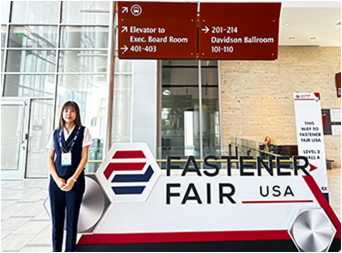Oct . 03, 2024 01:03 Back to list
Innovative Solutions for Durable Anchor Fasteners in Construction and Engineering Applications
Understanding Anchor Fasteners A Key Component in Construction and DIY Projects
Anchor fasteners are essential components in construction and home improvement projects. They provide stability and security by allowing objects to be fixed to various substrates, including concrete, brick, and drywall. This article explores the different types of anchor fasteners, their applications, and tips for choosing the right one for your needs.
Types of Anchor Fasteners
1. Expansion Anchors These are commonly used in masonry and concrete. When a screw is driven into the anchor, it expands against the base material, creating a secure hold. Common types include wedge anchors and sleeve anchors, which are often employed for heavy loads.
2. Plastic Anchors Ideal for lightweight applications, plastic anchors can be inserted into drywall to support items like pictures and light fixtures. They expand behind the wall when a screw is inserted, providing grip without damaging the wall.
3. Toggle Bolts These fasteners are used when heavy items need to be hung from hollow walls. Toggle bolts consist of a bolt with a pair of wings that open inside the wall, distributing weight and preventing the fastener from pulling through.
4. Epoxy Anchors For the most demanding applications, epoxy anchors use adhesive to bond the anchor to the base material. These are particularly useful in areas subject to vibration or heavy loads, such as securing machinery or structural components.
Applications of Anchor Fasteners
Anchor fasteners play a crucial role in various applications, from construction sites to DIY home projects
. They are commonly used toanchor fastener

- Secure shelving units, cabinets, and wall-mounted fixtures - Install heavy equipment and machinery in industrial settings - Attach signage and awnings to buildings - Provide structural integrity in buildings by anchoring steel beams or columns
Choosing the Right Anchor Fastener
Selecting the appropriate anchor fastener depends on several factors
- Load Requirements Consider the weight of the object you are securing. Heavier items will require more robust anchors, such as expansion or epoxy anchors.
- Material Compatibility Ensure that the anchor type is suitable for the material into which it will be installed. For example, plastic anchors are not appropriate for masonry, while toggle bolts are not ideal for solid walls.
- Installation Environment Consider exposure to moisture, temperature variations, or vibrations that may affect the anchor's performance. For outdoor or high-vibration applications, choose anchors designed for such conditions.
Conclusion
Anchor fasteners are vital hardware components that enhance the safety and durability of construction and DIY projects. By understanding the different types of anchor fasteners available and their appropriate applications, individuals can make informed choices, ensuring their projects are secure and long-lasting. Whether you're hanging a shelf or securing heavy machinery, selecting the right anchor fastener is crucial for the success of your endeavor.


